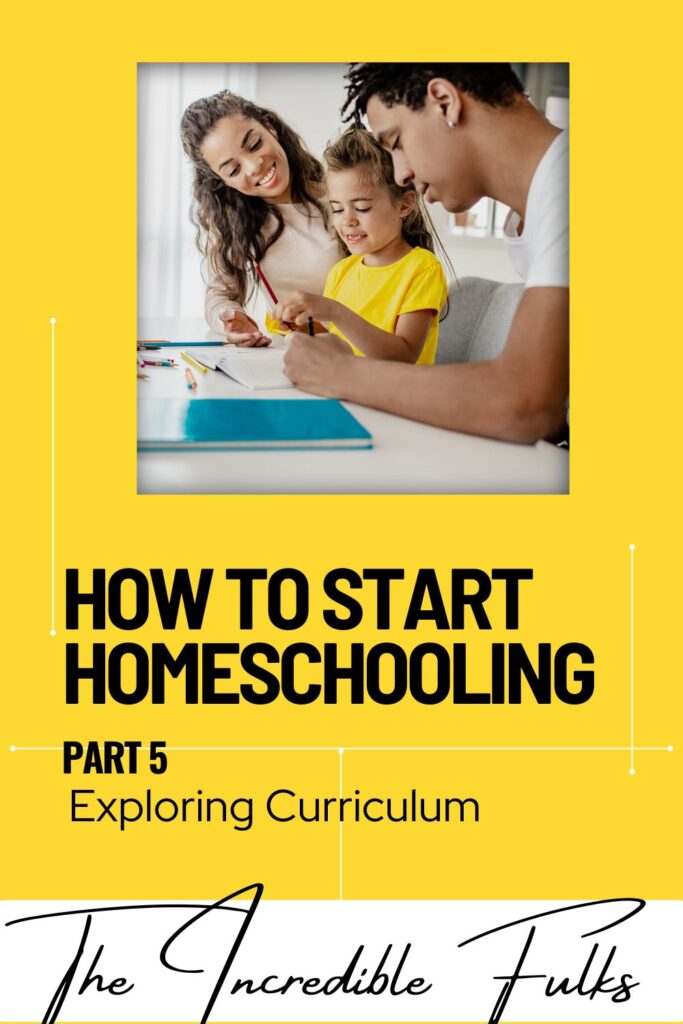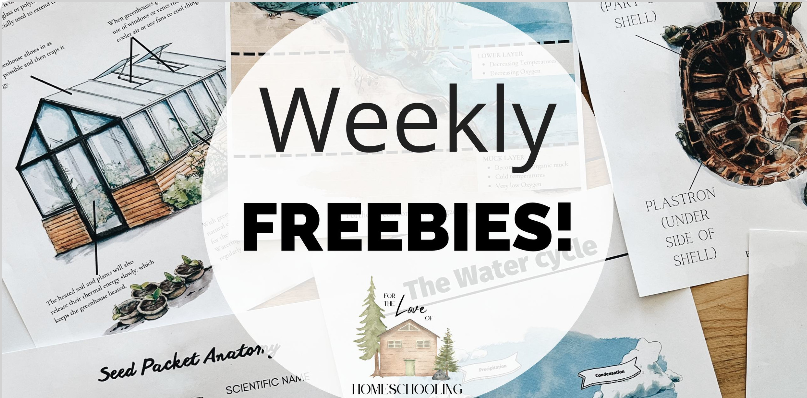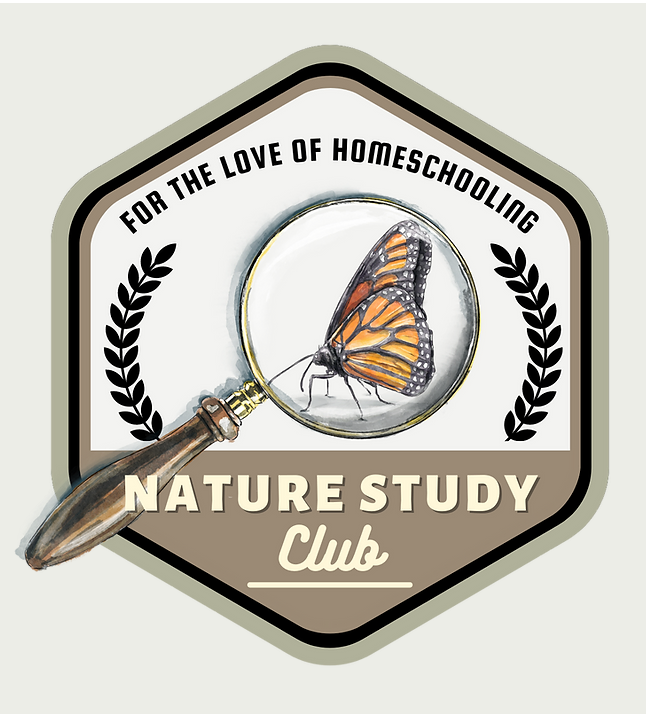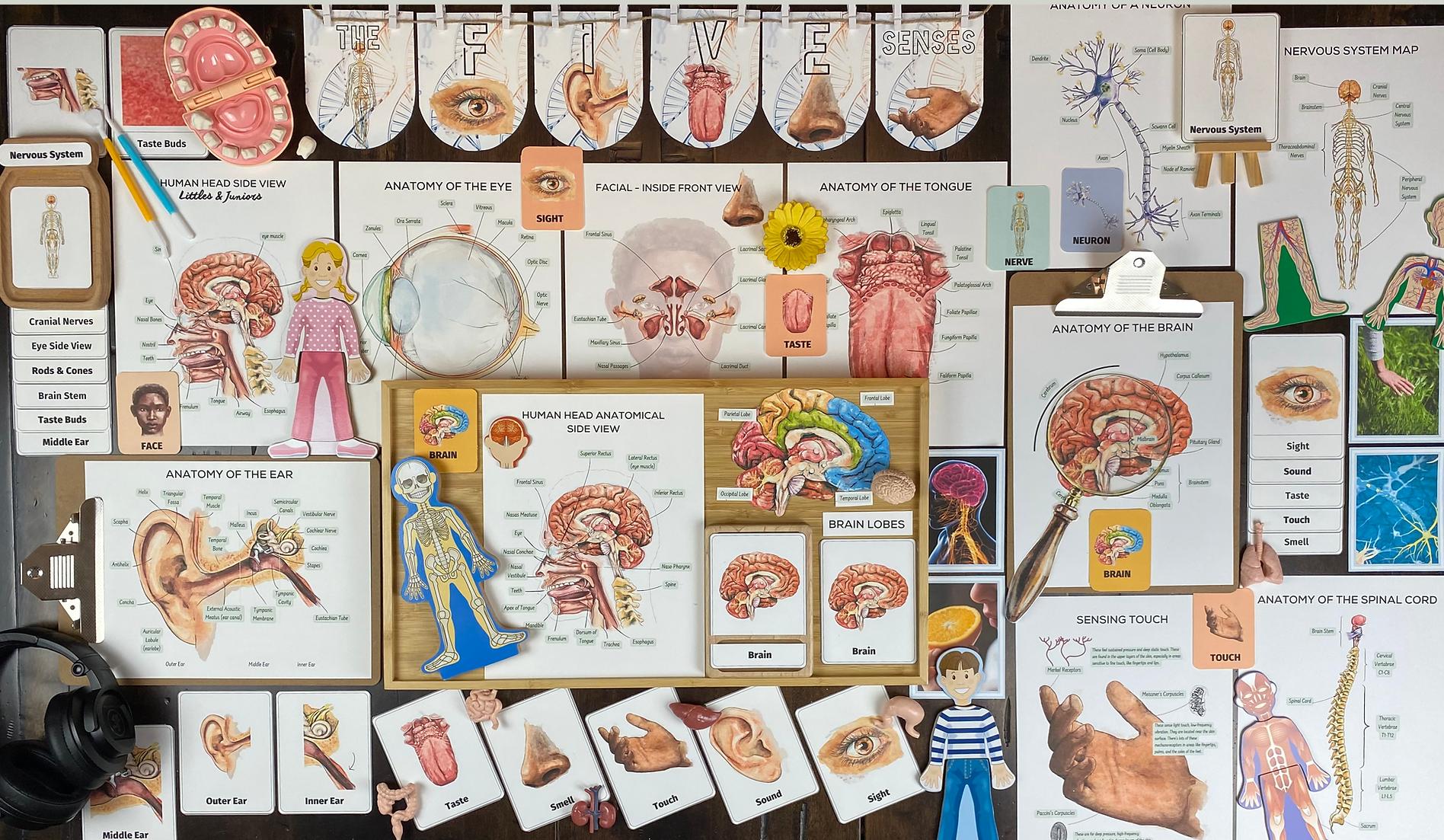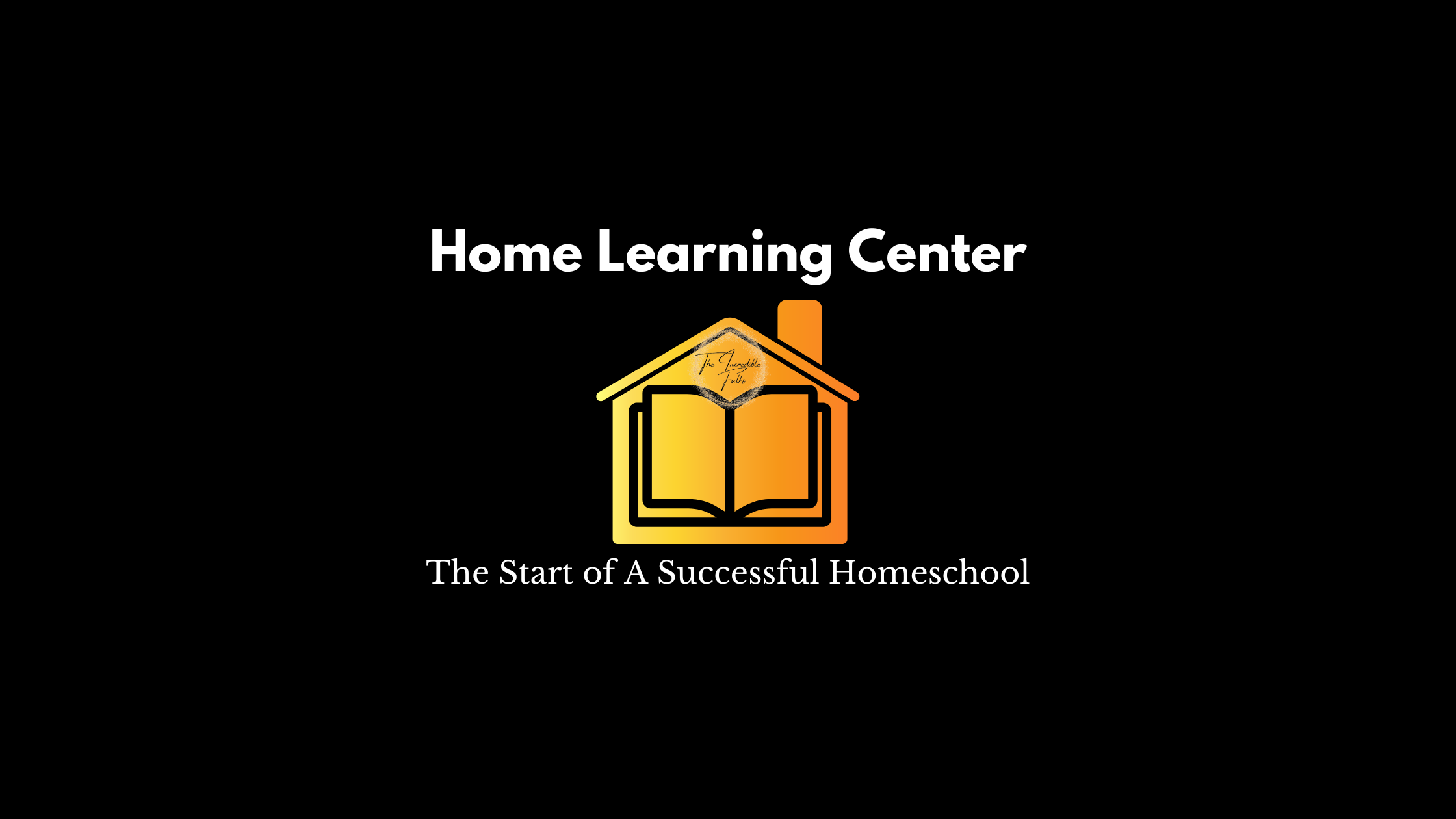Welcome back to Part 5 of our “How to Start Homeschooling” Series. If you are coming into this series right in the middle, be sure to go back to Part 1 and start there. Today we are going to go over the various curriculum options according to the various homeschooling philosophies. Let's dive in and figure out which is the best curriculum for your family.
Textbook-Based Programs
For those who prefer a more traditional approach, textbook-based curricula like ‘Abeka,' “Horizons” or ‘BJU Press' offer structured lessons and familiar assessment methods. These programs are comprehensive and often come with teacher guides and scheduled lesson plans. We use Horizon for our core subjects, but we have used both Abeka and BJU previously and for supplemental learning. I know many families who use Abeka and BJU for their core subjects too. Here are the materials I've used that I liked.
Online Learning Platforms
In the digital age, online curricula such as ‘Time4Learning‘ or ‘Khan Academy‘ provide interactive lessons across multiple subjects. These platforms often include tracking and assessments and can be excellent for self-directed learners. My daughter currently uses Khan Academy Kids for some educational screen time and she loves it. Both my homeschooled kids have used ABC Mouse for years. It is my favorite online learning platform that covers a wide range of grades. The only downside I've experienced is the inability to skip individual lessons.
Unit Studies
If integrating subjects around themes excites you, consider unit study programs like ‘Five in a Row' or ‘For The Love of Homeschooling' (FTLOH), which offer immersive learning experiences that tie multiple disciplines to a central theme. We use unit studies A LOT! Specifically FTLOH. We love their monthly clubs and weekly freebies. The value that they add to our homeschool is worth way more than the few dollars their products cost. My favorite so far has been their Nervous System unit study.
Use code INCREDIBLE at checkout for 10% off
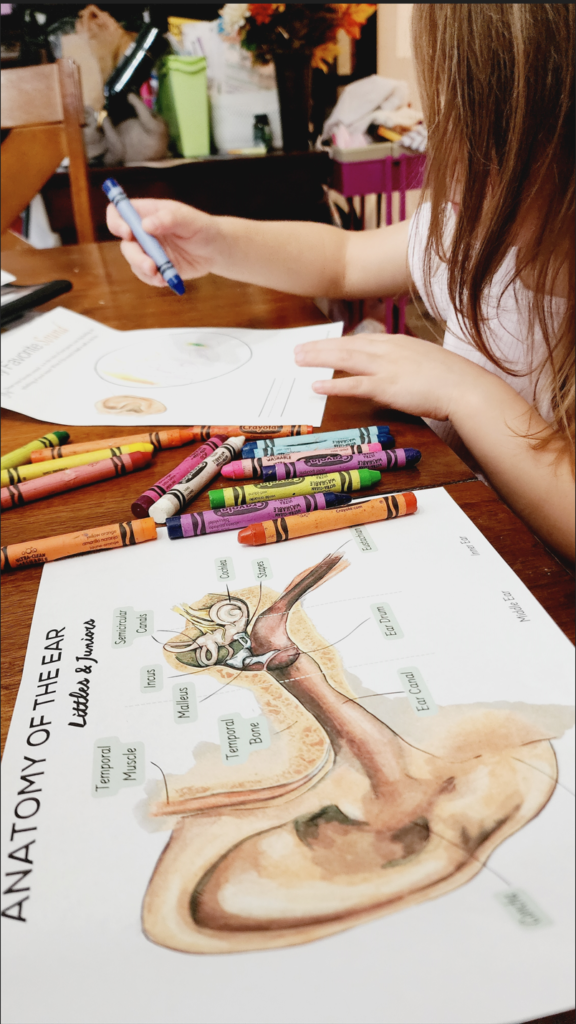
Literature-Based Curricula
For those who love reading, literature-based programs such as ‘Sonlight‘ or ‘BookShark‘ center the learning experience around high-quality literature, allowing students to learn through exposure to great books. I don't have much experience with this for core curriculum but I have enjoyed history curriculums like Story of the World that teaches history through reading. Living books has been a big trend amongst homeschoolers right now, and for good reason. It centers around reading!
Classical Education
Classical education curricula, such as ‘Classical Conversations' or ‘Memoria Press', focus on the Trivium and Quadrivium, emphasizing logic, rhetoric, and critical thinking, often with a strong foundation in the classics and language studies. This curriculum comes with a large following. There are many classical education co-ops that provide lots of community and support.
Montessori Materials
For a hands-on, child-led approach, Montessori subscription kits from companies like ‘KiwiCo‘ or ‘LoveEvery‘ offer a range of educational kits that encourage exploratory and independent learning. Montessori is well known for its ability to teach children self sufficiency early on and toys are not only fun, but build skills that will last a lifetime.
Charlotte Mason
Charlotte Mason curriculums center a lot around literature, but add extra emphasis to hands-on nature learning as well. These curriculums focus on the whole child, offering short lessons, lots of read-aloud books, and nature walks. Simply Charlotte Mason and Ambleside Free curriculums are popular options!
Unschooling Resources
Unschooling families often use resources like ‘John Holt's Bookstore' or ‘Fun-Schooling Books‘ that support interest-driven learning and foster a natural educational journey without traditional curriculum constraints. There aren't many resources for unschoolers since the whole point of unschooling is to go by your child's interests. Many parents will use local resources such as libraries and children's museums.
The Importance of Aligning Curriculum with Educational Goals
Choosing a curriculum is not about finding a one-size-fits-all solution but aligning educational materials with your child's needs and your family's goals. Whether you're aiming for academic excellence, creative exploration, or skill-based competence, your curriculum should be a catalyst for your child's growth and a reflection of your educational values. If you haven't already, go check out part 2 of my homeschooling series How to Start Homeschooling: Part 2 Discovering Your Philosophy to look at the various philosophies for homeschooling.
I have an eclectic homeschool philosophy so I pull from a variety of different learning styles. This allows us to not get burnt out as easily and keeps learning fun and interesting.
In-Depth Guidance with Our Course
In our comprehensive course, we delve into the details of these curricula and many others, offering reviews, selection strategies, and customization tips. We understand the importance of a well-chosen curriculum and provide you with the tools to navigate this critical decision. Check out the table of contents for this course below!
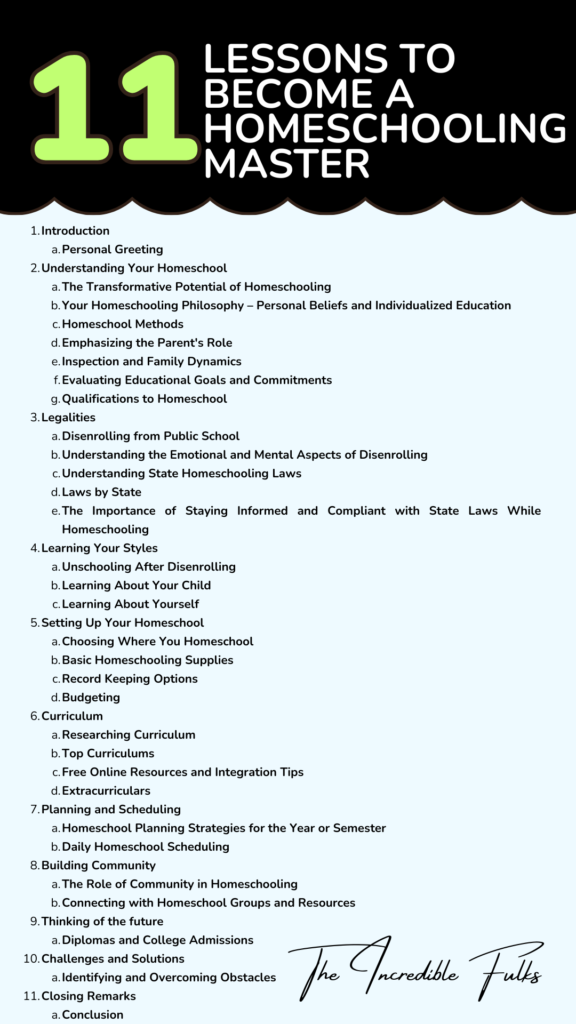
Conclusion
Selecting the right curriculum is pivotal to your homeschooling success. It sets the tone for daily learning and shapes your child's educational experience. Join us for the next article, where we will outline how to create a balanced homeschool schedule that accommodates your chosen curriculum and family's lifestyle.
Here is Part 6 in our series that covers record keeping!
Remember, our course offers a detailed guide through the maze of curriculum choices, ensuring you find the perfect fit for your homeschooling adventure. Be sure to subscribe so you can know when the next in the series is released!
